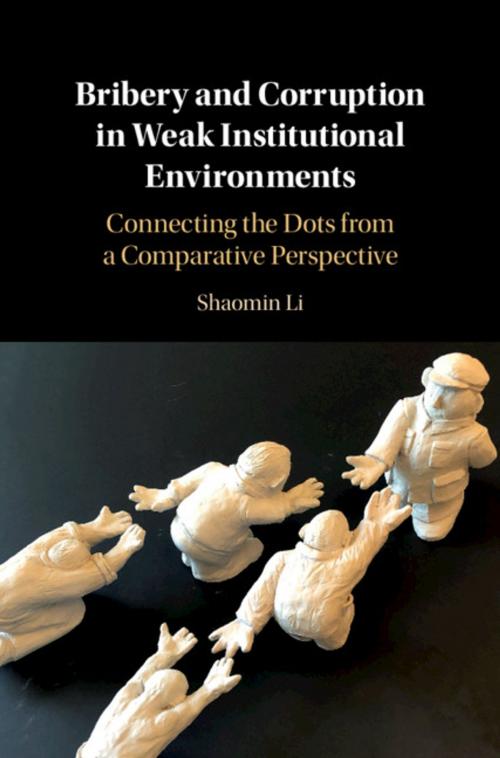Bribery and Corruption in Weak Institutional Environments
Connecting the Dots from a Comparative Perspective
Business & Finance, Economics, International, Business Reference, Business Ethics| Author: | Shaomin Li | ISBN: | 9781108657624 |
| Publisher: | Cambridge University Press | Publication: | May 16, 2019 |
| Imprint: | Cambridge University Press | Language: | English |
| Author: | Shaomin Li |
| ISBN: | 9781108657624 |
| Publisher: | Cambridge University Press |
| Publication: | May 16, 2019 |
| Imprint: | Cambridge University Press |
| Language: | English |
Drawing on twenty years of research and observations, Li explains how bribery and corruption are carried out in countries with weak institutional environments, and how these activities become globalized. By distinguishing rule-based, relation-based and clan-based governance, this book offers a novel explanation to the age-old puzzle of why some countries thrive despite corruption. It also sheds lights on the symbiotic roles corruption and anticorruption campaigns play in maintaining dictatorships. Applying cost-benefit analysis to different governance environments, Li argues that as non-rule-based economies expand, the transition from relying on private relationships to relying on public rules is inevitable. However, by highlighting the globalization of corruption by non-rule-based countries, this book warns against the potential threats and consequences of bribery by powerful dictatorial governments. This book will appeal to scholars, analysts and graduate students studying corruption, as well as policymakers, business professionals and executives seeking insights into the characteristics of bribery and corruption within different institutional settings.
Drawing on twenty years of research and observations, Li explains how bribery and corruption are carried out in countries with weak institutional environments, and how these activities become globalized. By distinguishing rule-based, relation-based and clan-based governance, this book offers a novel explanation to the age-old puzzle of why some countries thrive despite corruption. It also sheds lights on the symbiotic roles corruption and anticorruption campaigns play in maintaining dictatorships. Applying cost-benefit analysis to different governance environments, Li argues that as non-rule-based economies expand, the transition from relying on private relationships to relying on public rules is inevitable. However, by highlighting the globalization of corruption by non-rule-based countries, this book warns against the potential threats and consequences of bribery by powerful dictatorial governments. This book will appeal to scholars, analysts and graduate students studying corruption, as well as policymakers, business professionals and executives seeking insights into the characteristics of bribery and corruption within different institutional settings.















